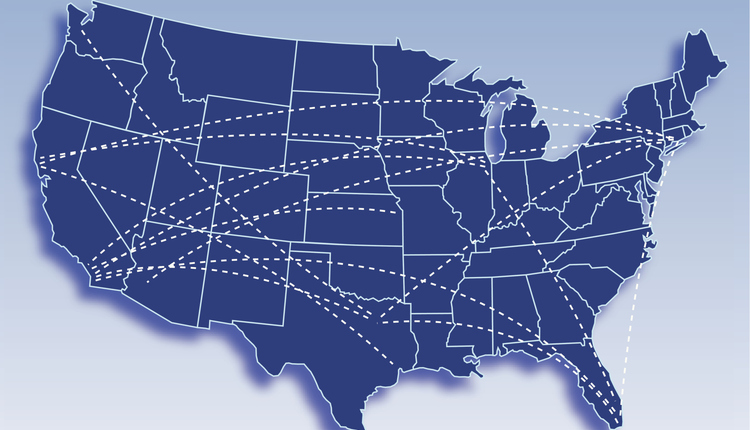WASHINGTON - Separate contract negotiations with the National Association of Letter Carriers, AFL-CIO (NALC) and the National Postal Mail Handlers Union, AFL-CIO (NPMHU) have come to an impasse. Under the statutory procedures that apply to postal labor negotiations, if both sides agree, the parties may first engage in mediation and, if unsuccessful, go to interest arbitration. The parties currently are discussing how they will proceed.
Contracts with both unions expired at midnight, Sunday, Nov. 20, 2011. All parties agreed to extend negotiations until midnight, Dec. 16, 2011, and again until Jan. 20, 2012. The existing contracts will be followed until terms of a new contract are resolved.
The NALC represents nearly 196,000 employees who work as letter carriers delivering mail primarily in urban areas. The NPMHU represents more than 46,000 employees who work in mail processing plants and Post Offices. Respectively, wages and benefits for NALC- and NPMHU-represented employees exceeded $15.7 billion and $3.5 billion last year.
Unlike the private sector, when negotiations fail, postal employees are not permitted to strike as Congress has designated the Postal Service as an essential service to the nation. An arbitrator determines the final outcome and is not legally required to consider the Postal Service's financial obligations when rendering a decision.
For additional information on labor negotiations visit this link.
# # #
A self-supporting government enterprise, the U.S. Postal Service is the only delivery service that reaches every address in the nation, 151 million residences, businesses and Post Office Boxes. The Postal Service receives no tax dollars for operating expenses, and relies on the sale of postage, products and services to fund its operations. With 32,000 retail locations and the most frequently visited website in the federal government, usps.com, the Postal Service has annual revenue of more than $65 billion and delivers nearly 40 percent of the world's mail. If it were a private sector company, the U.S. Postal Service would rank 35th in the 2011 Fortune 500. Black Enterprise and Hispanic Business magazines ranked the Postal Service as a leader in workforce diversity. The Postal Service has been named the Most Trusted Government Agency for six years and the sixth Most Trusted Business in the nation by the Ponemon Institute.
Contracts with both unions expired at midnight, Sunday, Nov. 20, 2011. All parties agreed to extend negotiations until midnight, Dec. 16, 2011, and again until Jan. 20, 2012. The existing contracts will be followed until terms of a new contract are resolved.
The NALC represents nearly 196,000 employees who work as letter carriers delivering mail primarily in urban areas. The NPMHU represents more than 46,000 employees who work in mail processing plants and Post Offices. Respectively, wages and benefits for NALC- and NPMHU-represented employees exceeded $15.7 billion and $3.5 billion last year.
Unlike the private sector, when negotiations fail, postal employees are not permitted to strike as Congress has designated the Postal Service as an essential service to the nation. An arbitrator determines the final outcome and is not legally required to consider the Postal Service's financial obligations when rendering a decision.
For additional information on labor negotiations visit this link.
# # #
A self-supporting government enterprise, the U.S. Postal Service is the only delivery service that reaches every address in the nation, 151 million residences, businesses and Post Office Boxes. The Postal Service receives no tax dollars for operating expenses, and relies on the sale of postage, products and services to fund its operations. With 32,000 retail locations and the most frequently visited website in the federal government, usps.com, the Postal Service has annual revenue of more than $65 billion and delivers nearly 40 percent of the world's mail. If it were a private sector company, the U.S. Postal Service would rank 35th in the 2011 Fortune 500. Black Enterprise and Hispanic Business magazines ranked the Postal Service as a leader in workforce diversity. The Postal Service has been named the Most Trusted Government Agency for six years and the sixth Most Trusted Business in the nation by the Ponemon Institute.

